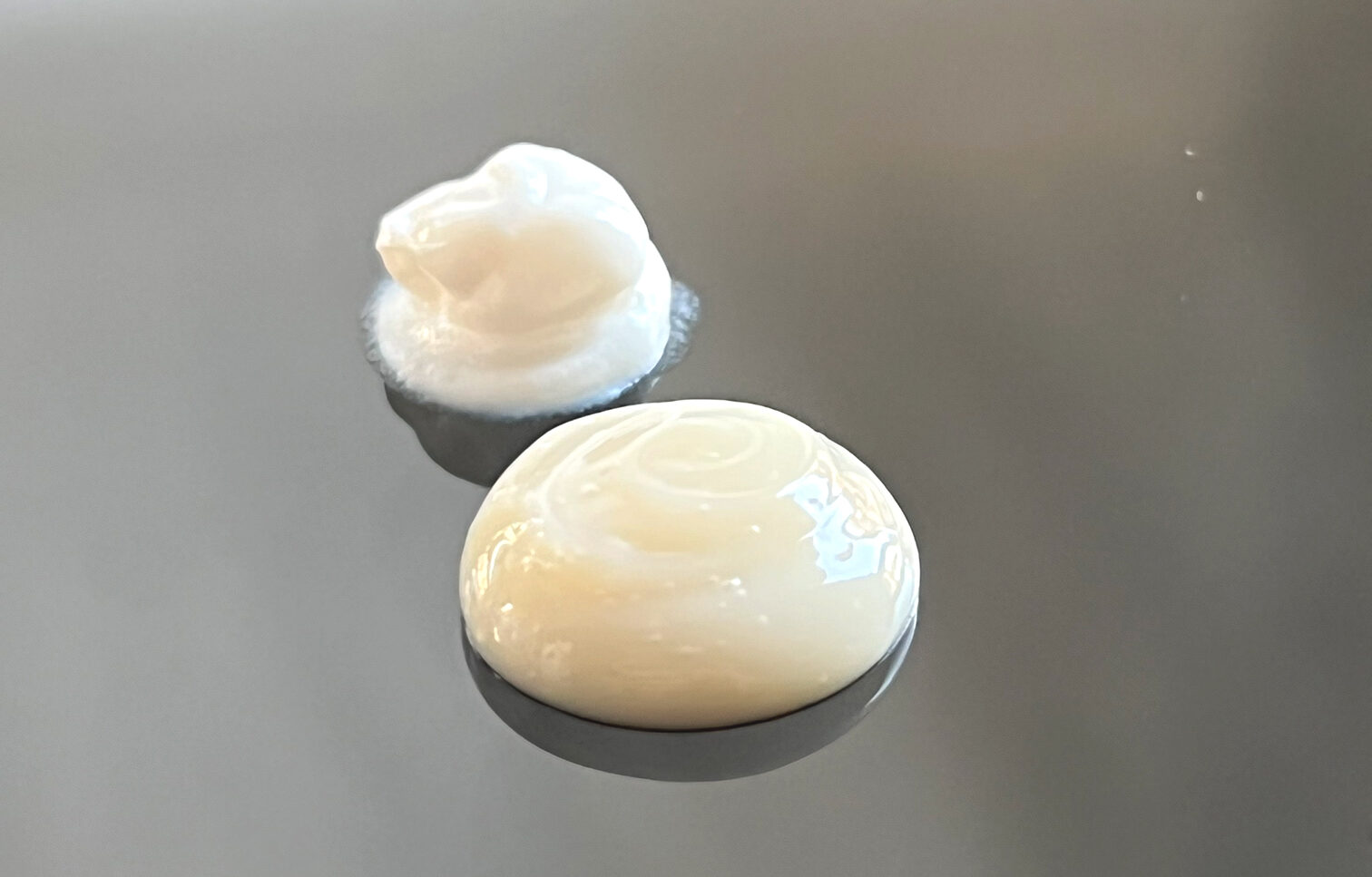Toothpaste with or without fluoride?

This is a hotly debated question in the world of dental health. While dentists, medical associations, and authorities advocate for fluoride, an increasing number of consumers are concerned about its effects on their health. We are taking a closer look at this question to enable you to make an informed choice. Ultimately, the decision is entirely yours.
What is Fluoride?
Fluoride is a trace element naturally present in the Earth’s crust, dispersed in the soil, water, air, and various foods. It is also found in our bodies, particularly in bones and teeth. Fluoride should not be confused with fluorine, which is a very toxic gas.
Fluoride is created naturally when gaseous fluorine binds with other substances, such as sodium. This natural chemical reaction neutralizes the toxic properties of fluorine, resulting in fluoride salts that have beneficial properties.
Why Fluoride for Dental Care?
Cavities develop when bacteria adhere to the surface of the teeth, creating a sticky deposit known as dental plaque. The bacteria in dental plaque convert sugars from food residues into acids. These acids attack the enamel, eventually causing it to crack and form cavities.
Fluoride provides effective protection against dental decay. It fortifies the enamel by preventing mineral loss and aiding in the reintegration of minerals when decalcification occurs. Additionally, it enhances teeth’s resistance to acids and inhibits the growth of plaque bacteria.
In short, fluoride protects tooth enamel in three ways:
- It accelerates the remineralization of enamel
- It creates a protective film against dental decay
- It kills bacteria
Could Fluoride be detrimental to Health?
If fluoride is so effective against dental decay and recommended by leading health institutions, why has its reputation become increasingly negative? The key is quantity. Excessive fluoride can have detrimental effects on teeth, causing an irreversible condition known as dental fluorosis, where the enamel becomes porous and cannot regenerate. However, this condition is very rare in Europe.
The Swiss Society for Nutrition (SSN) recommends an adequate daily fluoride intake of 3.1 to 3.8 mg for adults. The potentially toxic dose amounts to 5 mg of fluoride per kilogram of body weight. For an average adult weighing 60 kg, this would be equivalent to consuming three full tubes of fluoride toothpaste (75 ml, 1400 ppm [1.4 mg of fluoride per ml). For a 5-year-old child weighing 18 kg, it would be equivalent to consuming 2.5 tubes of fluoride toothpaste (75 ml, 500 ppm [0.5 mg of fluoride per ml]).
Fluoride is also found in table salt (250 mg per kg, corresponding to an average of 0.25 mg per day) and in tap water (less than 0.3 mg per liter in Switzerland). These amounts are very low compared to daily recommendations, making fluoride overdose or poisoning very unlikely and rare in Europe.
Special attention should be given to children, ensuring they do not exceed the prescribed daily fluoride dosage. For them, the principle “less is more” applies.
Recommended fluoride dosage in toothpastes
The minimum recommended fluoride content in toothpaste is 500 ppm (0.5 mg) from the first baby tooth to the last permanent tooth, with no fluoride recommended for toddlers under 18 months. Starting at six years old at the latest, you can switch to toothpaste containing up to 1500 ppm (1.5 mg).
Liebwerk toothpaste contains 1000 ppm (1 mg) of fluoride, offering effective protection against cavities while keeping fluoride levels to the minimum necessary.
Important: Remember to spit out the toothpaste after brushing and rinse your mouth with a small amount of water. Additionally, ensure that children do not brush their teeth unsupervised to make sure they spit and rinse properly and to prevent them from swallowing large amounts of toothpaste due to its appealing flavors.
In short
Overall, fluoride helps prevent dental decay and is a primary reason for the drastic reduction in dental decay in recent decades. With normal use, particularly from toothpaste alone, there is no risk of poisoning.
However, if you have a fluoride allergy or have experienced dental fluorosis, a fluoride-free toothpaste might be more appropriate. In any case, we recommend consulting your dentist for their opinion. Ultimately, the choice is entirely yours.
Stay tuned for more exciting content and thank you for being part of our journey towards a greener future!